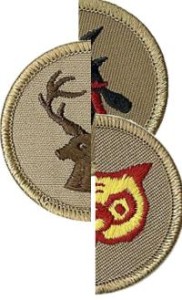 Every school day, our Scouts get up in the morning, have their breakfast, gather their belongings and head off to school for a day of learning. Important subjects such as history, English, mathematics, science, music and art are taught, with the aim that our young people will acquire a well-rounded set of skills to give them a starting point when they head out to college and a career.
Every school day, our Scouts get up in the morning, have their breakfast, gather their belongings and head off to school for a day of learning. Important subjects such as history, English, mathematics, science, music and art are taught, with the aim that our young people will acquire a well-rounded set of skills to give them a starting point when they head out to college and a career.
Trouble is, they aren’t learning the important stuff. In fact, what they actually are learning most likely works counter to their future aspirations. Continue reading “What aren’t they learning in school?”


 As a unit commissioner and Friends of Scouting presenter, I have the opportunity to visit many troops and packs and get insight into how they operate. We commissioners also talk among ourselves about problems and issues in our units.
As a unit commissioner and Friends of Scouting presenter, I have the opportunity to visit many troops and packs and get insight into how they operate. We commissioners also talk among ourselves about problems and issues in our units. We sometimes use the terms interchangeably. We have a boy-led troop with boy-led patrols. They read Boys’ Life. “Never do anything a boy can do” is a key piece of advice, and Baden-Powell made frequent references such as “The Scoutmaster teaches boys to play by doing so himself” and “The boy is not governed by don’t, but is led by do.”
We sometimes use the terms interchangeably. We have a boy-led troop with boy-led patrols. They read Boys’ Life. “Never do anything a boy can do” is a key piece of advice, and Baden-Powell made frequent references such as “The Scoutmaster teaches boys to play by doing so himself” and “The boy is not governed by don’t, but is led by do.”
 Has this ever happened to you?
Has this ever happened to you?